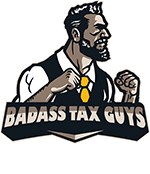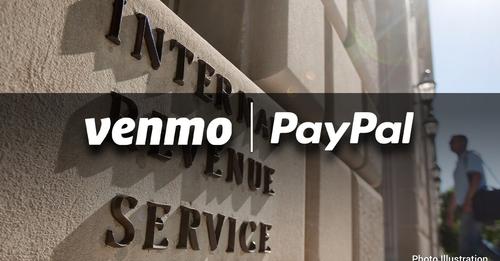Controversial reporting rule on payments over $600 will go into effect in 2024…
The Internal Revenue Service on Friday said that it is delaying by one year a new tax reporting requirement targeting Americans who made more than $600 online through third-party payment apps like Venmo or PayPal.
“The IRS and Treasury heard a number of concerns regarding the timeline of implementation of these changes under the American Rescue Plan,” said Doug O’Donnell, the acting IRS commissioner. “To help smooth the transition and ensure clarity for taxpayers, tax professionals and industry, the IRS will delay implementation of the 1099-K changes.”
The delay comes after fierce backlash from Republican lawmakers, small business owners and tax professionals to the lower reporting requirement.
The rule change – approved by Democrats in March 2021 with the passage of the American Rescue Plan – would have required payments platforms including Venmo, PayPal, Etsy and Airbnb to send Form 1099-K to the IRS and users if their transactions totaled more than $600 over the course of the year. Previously, the payment apps were required to send users Form 1099-K if their gross income exceeded $20,000 or they had 200 separate transactions within a calendar year.
“The additional time will help reduce confusion during the upcoming 2023 tax filing season and provide more time for taxpayers to prepare and understand the new reporting requirements,” O’Donnell said.
The change was intended to crack down on Americans evading taxes by not reporting the full extent of their gross income. However, critics say that it amounts to government overreach at its worst and that it could ultimately hurt small businesses. In recent weeks, lawmakers rushed to try to increase the reporting threshold to $10,000 in order to reduce the scope of the new rule; however, they ultimately failed to add it to the $1.7 trillion government funding package.
The Treasury Department has faced pressure to delay the implementation of the rule, including from industry group the National Association of Tax Professionals amid concerns that it could cause severe confusion for taxpayers and further bog down the IRS.
In a memo this week, the NATP slammed the rule as “overly burdensome” and warned that it could create “undue issues for taxpayers” as well as the already overwhelmed IRS, which is still wading its way through a backlog of unprocessed tax returns from previous years.
To be clear, business owners are already required to report that income to the IRS. The new rule simply means that the IRS will figure out what business owners earned on the cash apps, regardless of what that individual actually reports on their 1099-K, because it broadens the scope of the threshold.
Form 1099-K is used to report goods and services payments received by a business or individual in the calendar year, but there are certain exclusions from gross income that are not subject to income tax, including amounts from selling personal items at a loss, amounts sent as reimbursements and amounts sent as gifts.
“This transitional guidance applies only to information returns filed or furnished by brokers,” the IRS said. “In contrast, taxpayers are still required to report any income they receive from transactions involving digital assets.”
Once implemented, the lower reporting threshold threatens to sweep up millions of Americans who make money online. Roughly one in four Americans rakes in extra income on the side by selling something online, renting their home or using a digital platform to do work, according to the Pew Research Center.
Published by Megan Henney with FOX Business – 12/23/2022 at 1:22pm ET

